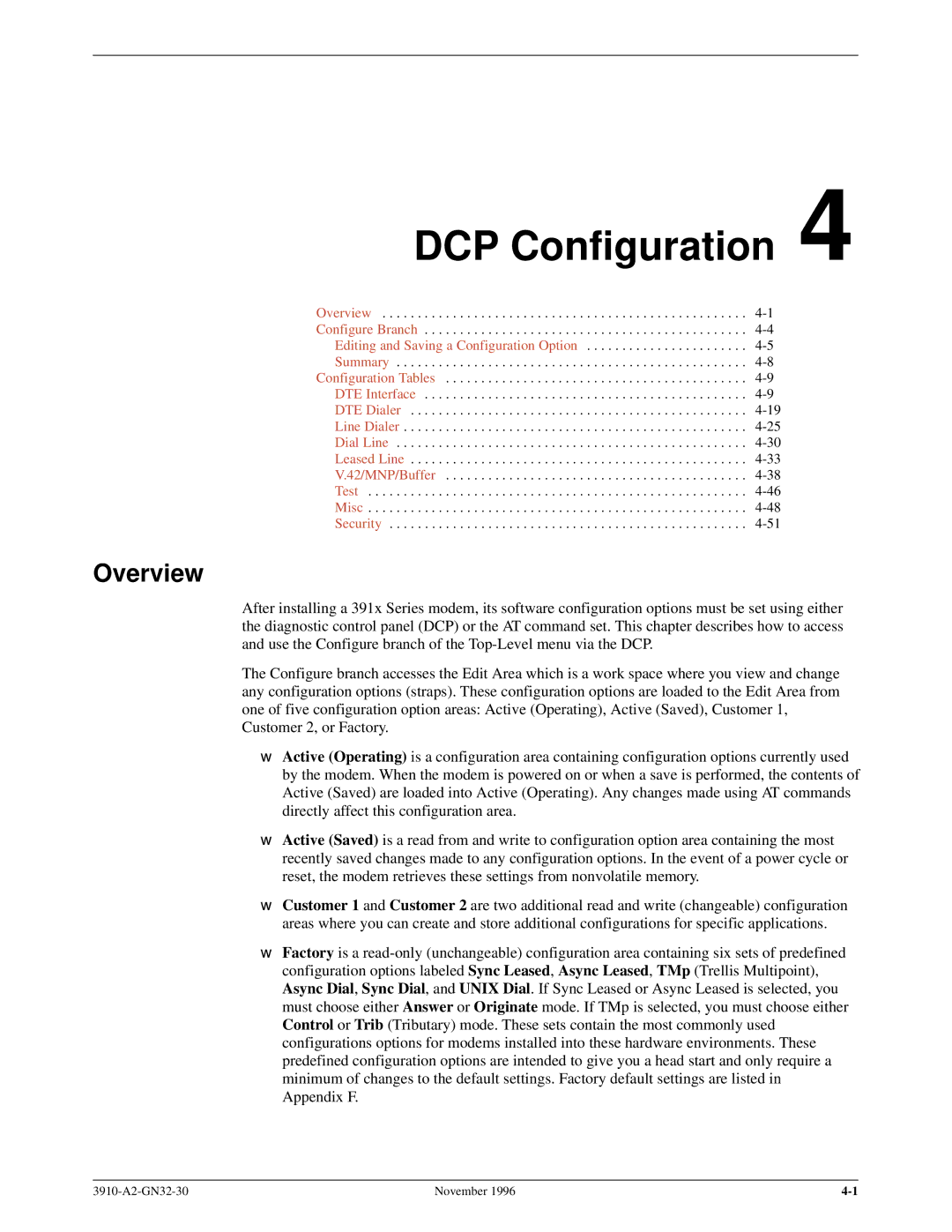
DCP Configuration 4
Overview . . . . . . . . . . . . . . . . . . . . . . . . . . . . . . . . . . . . . . . . . . . . . . . . . . . .
Configure Branch . . . . . . . . . . . . . . . . . . . . . . . . . . . . . . . . . . . . . . . . . . . . . .
Editing and Saving a Configuration Option . . . . . . . . . . . . . . . . . . . . . . .
Summary . . . . . . . . . . . . . . . . . . . . . . . . . . . . . . . . . . . . . . . . . . . . . . . . . .
Configuration Tables . . . . . . . . . . . . . . . . . . . . . . . . . . . . . . . . . . . . . . . . . . .
DTE Interface . . . . . . . . . . . . . . . . . . . . . . . . . . . . . . . . . . . . . . . . . . . . . .
DTE Dialer . . . . . . . . . . . . . . . . . . . . . . . . . . . . . . . . . . . . . . . . . . . . . . . .
Line Dialer . . . . . . . . . . . . . . . . . . . . . . . . . . . . . . . . . . . . . . . . . . . . . . . . .
Dial Line . . . . . . . . . . . . . . . . . . . . . . . . . . . . . . . . . . . . . . . . . . . . . . . . . .
Leased Line . . . . . . . . . . . . . . . . . . . . . . . . . . . . . . . . . . . . . . . . . . . . . . . .
V.42/MNP/Buffer . . . . . . . . . . . . . . . . . . . . . . . . . . . . . . . . . . . . . . . . . . .
Test . . . . . . . . . . . . . . . . . . . . . . . . . . . . . . . . . . . . . . . . . . . . . . . . . . . . . .
Misc . . . . . . . . . . . . . . . . . . . . . . . . . . . . . . . . . . . . . . . . . . . . . . . . . . . . . .
Security . . . . . . . . . . . . . . . . . . . . . . . . . . . . . . . . . . . . . . . . . . . . . . . . . . .
Overview
After installing a 391x Series modem, its software configuration options must be set using either the diagnostic control panel (DCP) or the AT command set. This chapter describes how to access and use the Configure branch of the
The Configure branch accesses the Edit Area which is a work space where you view and change any configuration options (straps). These configuration options are loaded to the Edit Area from one of five configuration option areas: Active (Operating), Active (Saved), Customer 1, Customer 2, or Factory.
•Active (Operating) is a configuration area containing configuration options currently used by the modem. When the modem is powered on or when a save is performed, the contents of Active (Saved) are loaded into Active (Operating). Any changes made using AT commands directly affect this configuration area.
•Active (Saved) is a read from and write to configuration option area containing the most recently saved changes made to any configuration options. In the event of a power cycle or reset, the modem retrieves these settings from nonvolatile memory.
•Customer 1 and Customer 2 are two additional read and write (changeable) configuration areas where you can create and store additional configurations for specific applications.
•Factory is a
November 1996 |
